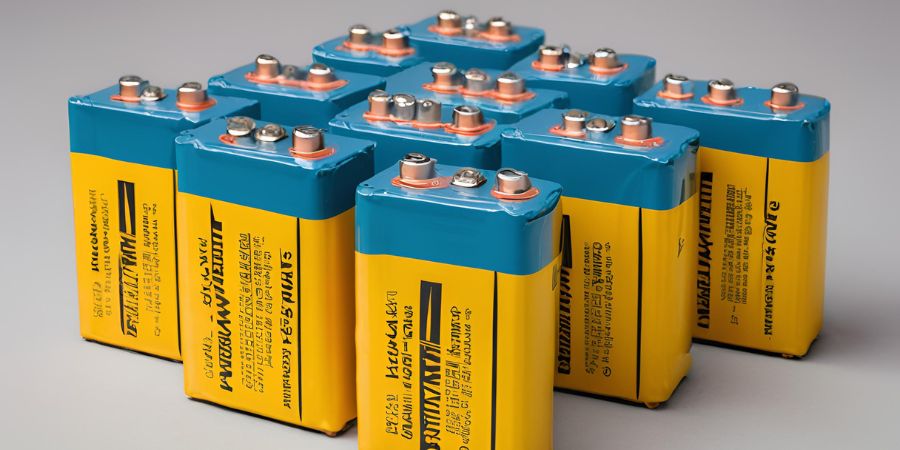As electric vehicles (EVs) continue to gain popularity, the demand for efficient, reliable, and long-lasting batteries has grown significantly. Among the various battery types available, the 36V lithium battery has emerged as a popular choice for high-performance electric vehicles. This article explores the numerous advantages of 36V lithium batteries, explaining why they are favored in the EV industry and how they contribute to better performance and sustainability.
What is a 36V Lithium Battery?
A 36V lithium battery is a type of rechargeable battery that operates at a nominal voltage of 36 volts. It is composed of multiple lithium-ion cells arranged in series and parallel configurations to achieve the desired voltage and capacity. These batteries are known for their high energy density, lightweight design, and ability to deliver consistent power over time.
Lithium-ion technology has revolutionized the battery industry, providing a more efficient and sustainable alternative to traditional lead-acid batteries. The 36V lithium battery is particularly well-suited for applications that require high performance, such as electric vehicles, due to its superior characteristics.
Key Advantages of 36V Lithium Batteries for Electric Vehicles
1. High Energy Density
One of the primary advantages of 36V lithium batteries is their high energy density. Energy density refers to the amount of energy a battery can store relative to its size and weight. Lithium batteries offer one of the highest energy densities among all battery technologies, which means they can store more energy in a smaller, lighter package.
For electric vehicles, this translates to longer driving ranges and reduced battery weight, which are critical factors for performance and efficiency. A lighter battery allows for better acceleration, handling, and overall driving experience, while a higher energy capacity ensures that the vehicle can travel longer distances on a single charge.
2. Longer Lifespan
Another significant advantage of 36V lithium batteries is their longer lifespan compared to other battery types. Lithium-ion batteries are designed to withstand hundreds, if not thousands, of charge and discharge cycles without significant degradation in performance. This durability is particularly important for electric vehicles, where battery replacement can be costly and inconvenient.
A longer lifespan means that the 36V lithium battery can provide reliable power for many years, reducing the need for frequent replacements and minimizing waste. This not only lowers the overall cost of ownership for EV users but also contributes to environmental sustainability by reducing battery disposal and resource consumption.
3. Faster Charging Times
Charging time is a crucial factor for electric vehicle users, as longer charging periods can limit the practicality and convenience of EVs. One of the standout features of 36V lithium batteries is their ability to charge much faster than traditional lead-acid batteries.
Lithium-ion technology allows for rapid charging, often reaching 80% capacity in under an hour with the appropriate charger. This fast-charging capability ensures that EV users can spend less time waiting for their batteries to recharge and more time on the road. Moreover, faster charging times contribute to a more efficient energy grid, as EVs can be charged quickly during off-peak hours when electricity demand is lower.
4. Consistent Power Output
Electric vehicles require a stable and consistent power supply to operate efficiently. Unlike some other battery types, 36V lithium batteries are known for their ability to deliver a steady power output throughout their discharge cycle.
This consistent power delivery ensures that the vehicle maintains optimal performance, whether accelerating, cruising, or climbing hills. It also means that the vehicle’s systems, such as lights, air conditioning, and infotainment, can function reliably without experiencing power drops or fluctuations.
5. Lightweight and Compact Design
The lightweight and compact design of 36V lithium batteries is another major advantage for electric vehicles. Traditional lead-acid batteries are bulky and heavy, which can negatively impact vehicle performance and efficiency. In contrast, lithium batteries are much lighter and take up less space, allowing for more flexible vehicle design and improved weight distribution.
A lighter battery contributes to better handling and maneuverability, enhancing the driving experience. Additionally, the compact size of 36V lithium batteries allows for more space within the vehicle for other components, passenger comfort, or additional cargo capacity.
Environmental Benefits of 36V Lithium Batteries
1. Reduced Carbon Footprint
One of the key motivations for transitioning to electric vehicles is to reduce greenhouse gas emissions and combat climate change. 36V lithium batteries play a crucial role in this effort by offering a more environmentally friendly energy storage solution.
Lithium batteries have a lower carbon footprint compared to traditional lead-acid batteries due to their higher energy efficiency and longer lifespan. By reducing the frequency of battery replacements and minimizing energy losses, 36V lithium batteries help decrease the overall environmental impact of electric vehicles.
2. Recycling and Resource Management
While lithium batteries do contain materials that need to be carefully managed, such as lithium, cobalt, and nickel, the industry is making strides in improving battery recycling processes. Many manufacturers are developing programs to recover valuable materials from used batteries, which can be reused in the production of new batteries.
Recycling helps reduce the demand for raw materials, conserve natural resources, and minimize the environmental impact of mining activities. As recycling technologies continue to advance, the sustainability of 36V lithium batteries will only improve, making them an even more attractive option for eco-conscious consumers.
Conclusion
The advantages of 36V lithium batteries make them a top choice for high-performance electric vehicles. Their high energy density, long lifespan, fast charging times, consistent power output, and lightweight design contribute to better vehicle performance, efficiency, and user experience. Additionally, the environmental benefits of reduced carbon footprint and improved recycling processes make 36V lithium batteries a sustainable choice for the future of transportation.
As the electric vehicle market continues to grow, the importance of reliable and efficient battery technology cannot be overstated. 36V lithium batteries are poised to play a pivotal role in this evolution, powering the next generation of high-performance, eco-friendly vehicles.

